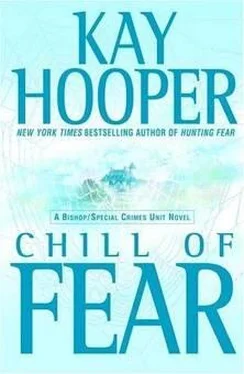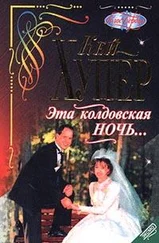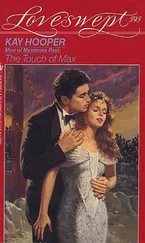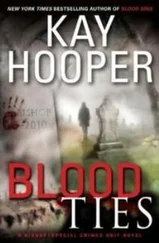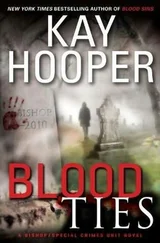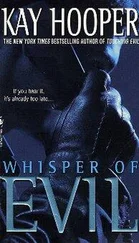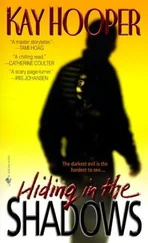Stephanie had to laugh, but said, "Well, I'm not going to be the one to tackle this, that's all I know. Or at least, I'm not planning to go through anything except the paperwork. I have to say, though, this space is a lot more inviting than I'd expected, even with all the clutter. At least the paperwork seems to be filed fairly neatly, and all in one place."
Padgett gave her a pitying look, then beckoned her to follow as he headed toward the section piled high with furniture. "Couple managers back, somebody had the bright idea to get all the old Lodge records and other paperwork in its own space, nice and neat and organized instead of just stacked wherever there happened to have been a bit of clear floor or an empty shelf. Most of it got moved, eventually, out of all the scattered corners of this place. But not all."
Stephanie followed him around the furniture, and bit back a groan when she saw a rather dark corner piled high with obviously old ledgers and file boxes and even several old banded trunks.
"Jesus," she muttered.
"The light's not great here," Padgett said. "Why don't I start dragging all this stuff back toward the stairs? At least then you'll be able to see what you're looking at. That's assuming you want to start in on this stuff." His face said clearly enough that he hoped she'd return to the file cabinets, which would obviously keep her busy for a long time.
Stephanie hesitated, then said, "I guess this stuff here would have contained some of the oldest records, right?"
"Yeah, probably. It all used to spill out a lot farther in this corner, with boxes stacked right up against the furniture, so I'd expect the oldest stuff to be back in that corner against the walls." He eyed her. "I've been here about as long as anybody, so if I knew what you were looking for, I might be able to shorten the search."
Briskly, she said, "Well, I don't really know myself. But since you offered to help, why don't you grab some of that stuff and start bringing it closer to the stairs? I don't know how much time I've got before the next crisis erupts, so I might as well do what I can in the meantime."
"Yes, ma'am."
Leaving him to it, Stephanie retreated to the "organized" area near the stairs and, drawing a deep breath and flipping a mental coin, opened a file drawer at random to start her search. She didn't have a clue what she was looking for.
But she had a hunch she'd know it when she found it.
"That's the last of this lot," Quentin said, setting aside the largest of the two boxes.
"Anything helpful?"
"Not as far as I can see. A few interesting letters from around the early 1900s, written to guests and staff, but nothing to indicate unsolved disappearances or other mysteries here."
Diana gestured toward the old photographs stacked on the coffee table before her and said, "Same here, more or less. I've gone through all the photo albums and all the loose photos we found. Interesting pictures, most without even a date on the back, but nothing that sends up a red flag."
"Well, the universe never makes things easy."
"So I've noticed." She shook her head. "Maybe there's nothing else here, and all I was meant to find was the one picture."
It lay alone on the coffee table within easy reach of Diana, and she glanced at it often. That picture of two little girls and a dog, a moment frozen in time.
"Could be," Quentin agreed. "Signs and portents."
"Is that what we're looking for?"
"God knows. Bishop calls them signposts, and says too many of us walk right by them without noticing. That's probably true. I mean, most people are too busy just getting through the day to pay much attention to hints from the universe."
"So what do these signposts look like, according to Bishop?"
Since Diana had asked him to talk about the Special Crimes Unit while they went through the stuff from the attic, Quentin had obliged. She hadn't wanted to talk any more about the experience the storm had triggered, obviously needing time to come to terms with it, and he was reluctant to push her even though questions and thoughts were still swirling in his mind.
Instead, he had talked about the SCU as the storm had gradually faded away outside and they had worked their way through most of the stuff brought down from the attic, offering thumbnail sketches of some of his fellow team members as well as a few of the more interesting war stories involving the unit.
He wasn't at all sure she had even listened to him, and half suspected she'd only wanted the sound of another voice in the room, the sense of another person, while her own thoughts were miles away. But he had jumped at the chance to talk about the unit, feeling it was important for her to hear about things that would make her own paranormal experiences at least sound fairly ordinary by comparison.
She had, it seemed, heard at least some of what he'd told her.
"Signs and portents. They can look like anything, that's the hell of it," he answered her. "The more ordinary, the more likely they are to be anything but. For instance—" He reached for the last box he had to go through, and from the jumble of its contents produced a very old cigar box. "—this. This is, what, the third lost-and-found box we've come across?"
"At least."
"And the same sort of stuff inside." He opened the box and inspected its contents. "Bits of jewelry, a cigarette lighter, assorted keys, hair combs and clips, a fountain pen, a rabbit's foot, nail clippers, coins — junk, mostly. Stuff the original owners have long, long since forgotten about. But who knows if there's a signpost in here? A sign or portent just lying in this ordinary little box for somebody paying attention? There could be."
"In a cigar box filled with junk?"
"You know what they say. One man's junk is another man's treasure." Quentin shrugged. "Though it's not intrinsic value that matters, of course. Like I said — any sign tends to be something ordinary. At least at first glance. Or even at second glance."
Diana held out her hand and, when Quentin gave her the box, began going through the contents almost idly. "I'd say this stuff was pretty ordinary, all right. How are we supposed to recognize signs and... portents... if they're just average, everyday things? What does your Bishop say about that?"
"Well, to me he said something typically cryptic. He said to pay attention to everything, and the important bits would make themselves conspicuous at some point along the way."
"I guess the universe doesn't like to be obvious."
"Apparently not." Quentin hesitated, then said carefully, "If you're right about your father coming here, he should be able to give us at least some of the answers."
Diana was frowning slightly as she continued to gaze into the box on her lap. "But will he? That's the question. And even if he does, will his answers be the truth?"
"You think he'd try to keep a lie going even in the face of this?"
"That depends on why he started the lie in the first place, doesn't it? And we don't have so much, after all. A photograph of two little girls. As far as you've known all these years, Missy lived here with her mother. We can't prove otherwise, can we?"
"No," Quentin admitted. "At least not with any information I've found to date. There was never a hint, from Missy or from anything I've found since her death, to indicate that Laura Turner wasn't her natural mother. In fact, in the police files of the original investigation is a photocopy of Missy's birth certificate. Supposedly, anyway. Born Missy Turner, daughter of Laura, in Knoxville, Tennessee. Father unknown."
"You never thought that could have been a fake?"
"About ten years ago I went as far as checking original hospital records, and there was a child named Missy Turner born to a Laura Turner on that date, just as the certificate noted. I had no reason to dig any deeper."
Читать дальше
